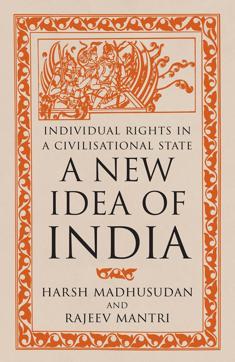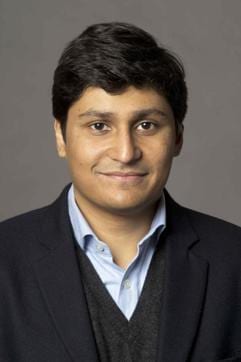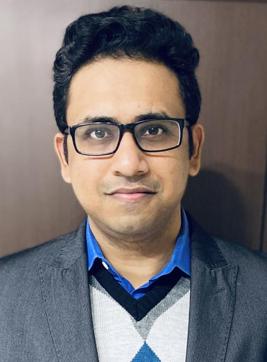Excerpt: A New Idea of India by Harsh Madhusudan and Rajeev Mantri
In this exclusive first excerpt from their new book, Harsh Madhusudan and Rajeev Mantri look at the vexatious matter of saving secularism from the secularists

The Indian State has, since the passage of the First Amendment to the Constitution, appointed itself a referee in deciding what is acceptable speech and what is not. The State censoring speech and content of its own volition is bad enough — what makes matters worse is the censorship in response to threats by some group claiming to be offended. But when there is a referee with the power to decide one way or the other, there is no use blaming offended groups for lobbying and pressurising governments to get what they want.
By taking a stand either way, the State exposes itself to several charges, especially when it has a history of seeing its citizens as members of groups rather than as individuals. More often than not, a group’s right to get offended and enforce censorship trumps an individual’s right to freedom of speech and expression.
In 2012, Salman Rushdie was prevented from participating at a literature festival for having written The Satanic Verses two decades earlier. In 2015, Hindu Mahasabha leader Kamlesh Tiwari was arrested and detained under the draconian National Security Act by a ‘secular and liberal’ Samajwadi Party government for making ‘derogatory remarks’ about the prophet of Islam. In 2019, Kamlesh Tiwari was murdered, and those who conspired to kill him confessed that their motive had been to avenge what Tiwari had said. Celebrity TV anchors and the liberal intelligentsia seen pontificating about press freedom also looked the other way when Shirin Dalvi, an editor of the Urdu newspaper Avadhnama, was arrested for reprinting the Charlie Hebdo cartoons. Dalvi subsequently lost her job and the newspaper had to be shut down.
These episodes, predictable to a fault, are illustrative of the way politics has been conducted and the free speech debate in India has played out over the years. Employing wily statecraft and plausible deniability, the Congress–UPA government achieved its political objective of stopping Rushdie from attending the event. Speaking at the same literature festival in 2012, Outlook magazine editor Vinod Mehta, a self-described Left–Liberal, berated the Congress party for its ‘shameless communalism’ in using the episode to court Muslim votes in poll-bound Uttar Pradesh.
While there was highfalutin outraging from the chattering classes and the customary online petition imploring the government to remove the ban on Rushdie’s book, almost nobody came to the defence of Kamlesh Tiwari —the principle of free speech be damned.
Every time an episode of this nature occurs, television channels conduct debates on the state of free speech in India…
It is worth thinking about why the same cycle of outrage repeats again and again, yet nothing really changes. Since Independence, movies and books have been banned under pressure from different interest groups in various states all over India. The list is simply too long to reproduce in full, but it includes movies such as The Da Vinci Code, Jodhaa Akbar, Aaja Nachle and several books deemed offensive to Muslims, Hindus, other identity groups, and even members of the Nehru–Gandhi family. In a new low, in 2011, columnist Anish Trivedi, who had supposedly written an ‘anti-caste’ article was convicted and jailed for six months by a court of law. The world’s largest democracy can take credit for jailing writers like totalitarian States are known to do.
… All these are instances of assault on free speech. No celebrity writer or journalist protested these attacks on free expression. This is because the importance of free speech in a democracy isn’t widely understood or championed in our country. Salman Rushdie said it best after he had been prevented from visiting his home country in 2012:
I have been fighting this battle, not just on behalf of myself … but on behalf of the great principles that have evolved here; the principles of freedom of expression, which is the principle on which all other democratic freedoms rest. If you don’t have freedom of expression, you don’t have any other freedom. That’s the corner stone and the bedrock of any free society and that’s why I fight this battle.
Free speech is about preventing the State from forcing individuals to remain silent as well as not forcing individuals to say something they do not want to. The right to offend is fundamental to free speech. Free speech is also about the State protecting individuals from being at the receiving end of physical attacks from others. Such protection is needed especially for speech considered offensive by some people. Let us go back to a debate in the Indian Parliament, and consider a historical case study from a foreign land many Indians love.
Clarence Brandenburg, a leader of the racist Ku Klux Klan, was allowed to take out inflammatory rallies by the US Supreme Court in the landmark Brandenburg vs Ohio case — just one year after the tragic assassination of civil rights icon Martin Luther King Jr. The court ruled that so long as any speech is both unintended and unlikely to incite imminent lawless action, it must not be curtailed. The court held that the intent of violence, the probability of violence, as well as the imminence of violence, all three must be present. Mere abstract advocacy of violence, much less hate, cannot be proscribed.
Therefore, what is hate speech in some countries qualifies as protected speech in American jurisprudence. The difference in the ways the Indian Constitution and the American Constitution guarantee free speech is telling. Article 19 clause (1) (a) of India’s Constitution states that all citizens shall have the right to freedom of expression, and then goes on to list the ‘reasonable restrictions’ on this freedom. These ‘reasonable restrictions’ were inserted by India’s first prime minister, Jawaharlal Nehru. This First Amendment was supported by BR Ambedkar and staunchly opposed by Syama Prasad Mookerjee.
Mookerjee called out Nehru’s intolerance as ‘scandalous’, to which Nehru retorted that those who thought the amendment curbed liberty were liars. Mookerjee argued that India should have unrestricted, absolute freedom of expression, on the lines of what Sweden had.
Nehru told Parliament that the free press was ‘poisoning the minds of the younger generation, degrading their mental integrity and moral standards’. He accused some of the media properties of propagating ‘vulgarity, indecency and falsehood’. Jawaharlal Nehru, feted by historian Ramachandra Guha as a man who ‘respected the press’, succeeded in pushing through the amendment, including vague generalities like public order, decency or morality, India friendly relations with foreign countries and other arbitrary causes in the interest of which restrictions on speech could be imposed. Time magazine, reporting on the issue, said at the time that Prime Minister Nehru was more interested in muzzling criticism of his foreign and domestic policies from news weeklies such as Blitz and Current, published at the time in Mumbai. The petulant Nehru who had jailed the poet Majrooh Sultanpuri in 1951 for writing ‘Commonwealth ka Das hai Nehru’ (Nehru is slavish to the Commonwealth) wasn’t above defiling the Constitution for settling petty battles.

With the passing of the First Amendment, free speech became constitutionally restricted in India. In stark contrast to India’s caveat-filled constitutional right to free speech, the First Amendment to the American Constitution simply states that ‘Congress shall make no law … abridging the freedom of speech, or of the press’. India’s Constitution doles out ‘rights’ to individuals. The American Constitution assumes pre-existing rights and freedoms, and places limitations on the government instead. For India, the State is supreme with practically no constitutional limits because of all the broad caveats. For America, the State is but a constitutionally restricted agent of the individual. In India, the onus is on the individual to show that he or she is within their rights to do something. In the US, the government has to prove that it is constitutionally valid to regulate an undeniable freedom.
This is the difference between lip-service to freedom and true freedom. The State should exist merely as a guarantor– protector of rights that individuals inalienably have. The true battle that free speech votaries should fight is to eradicate the outdated, colonial laws governing free speech in India and to argue for the dissolution of patronising, anachronistic institutions such as the Censor Board.
The defence of free speech as the cornerstone of individual rights should not be merely on normative or utilitarian grounds. The defence must also take into cognisance the practical realities of politics. America’s First Amendment causes heartburn to many Americans when their identity is under attack. Nonetheless, they have the comfort that their government is not permitted to choose winners and losers in the public square and everybody can respond with equally fervent speech. This is not the case in Europe. For example, in the name of a dubious multiculturalism, Dutch politician Geert Wilders’s speech was banned in some countries but Islamist preacher Anjem Choudary was allowed free reign — while being on government welfare.

Such double standards have been witnessed in India too. … Competitive intolerance occurs when opportunistic governments choose what to censor based on their political preferences. Even if we had a Solomon to sieve art into sacred and sacrilegious, it would inevitably be perceived as unfair by one party or the other. That is why it is better to allow all speech in the public sphere…
If certain types of speech are curtailed based on the threat or actuality of violence, it creates a perverse incentive for those taking offence to indulge in more violence, knowing that the State is likely to give in to their demands for censorship. Some sceptics obviously raise doubts over the Indian State’s capability to manage the fallout when the limits of free expression are tested. They are not wrong. But the answer to this challenge is not to continue with restrictions out of fear but to shore up State capacity to enforce the law and take violators to task…
Clearly, India has under-invested in law enforcement. No wonder then that it chooses the easy way out by silencing the Tiwaris and the Rushdies of the world rather than trying to control the mobs baying for their blood... When an individual says something that another person or group finds offensive, that individual needs to be protected and his or her rights unequivocally defended by the government. It is for India to decide whether it wants to be like Islamist Pakistan or a free republic, as envisioned by the makers of our constitution…





